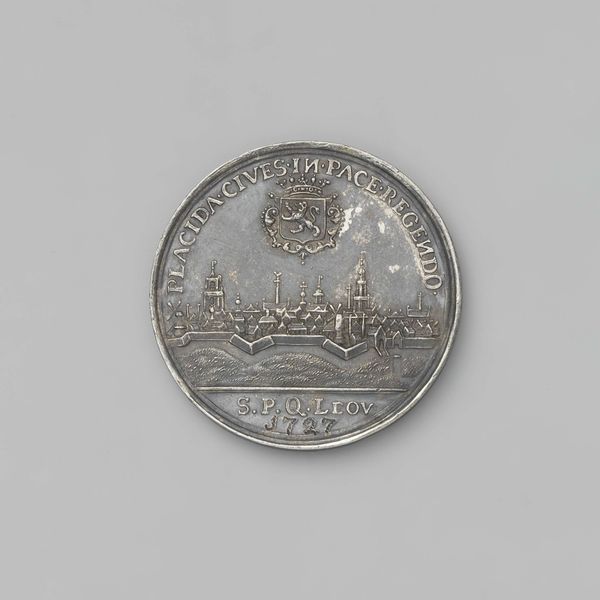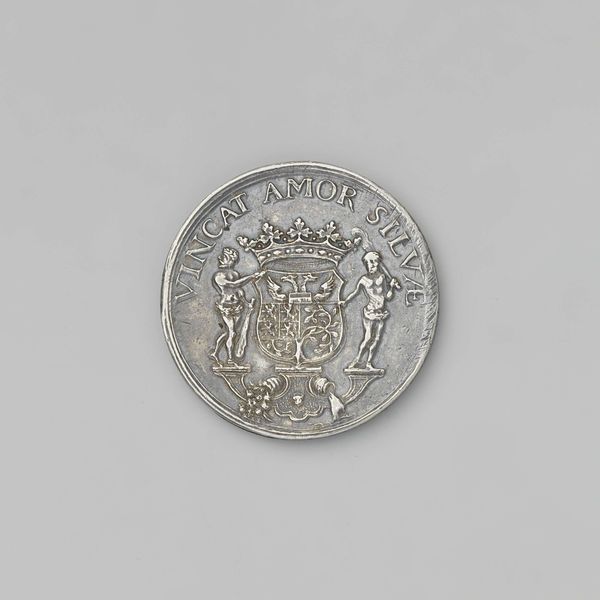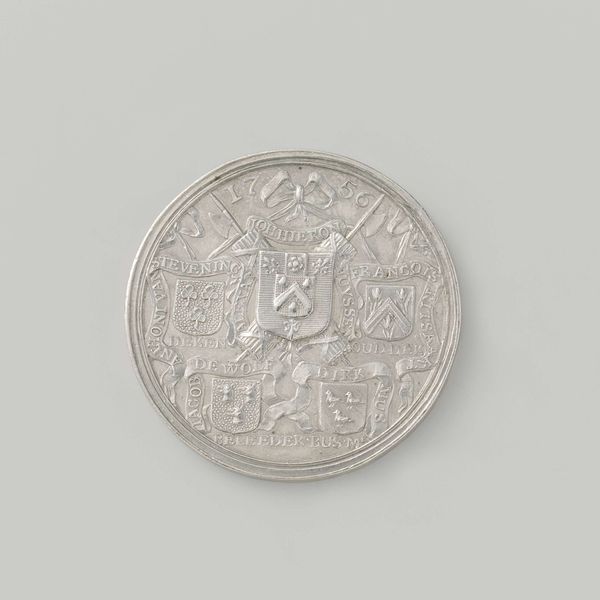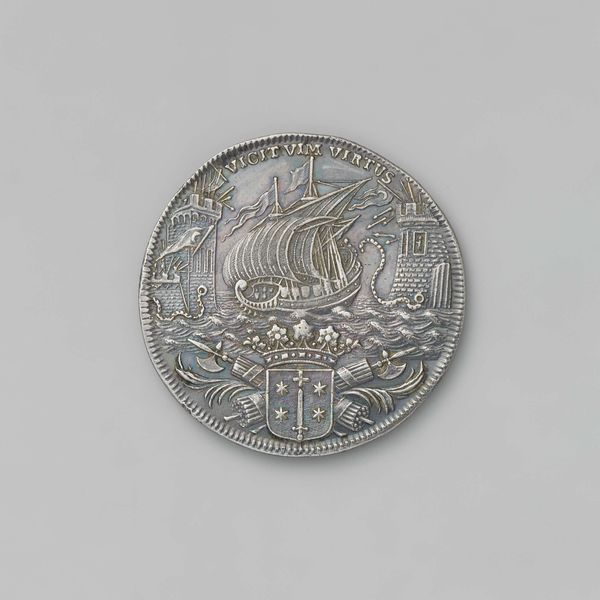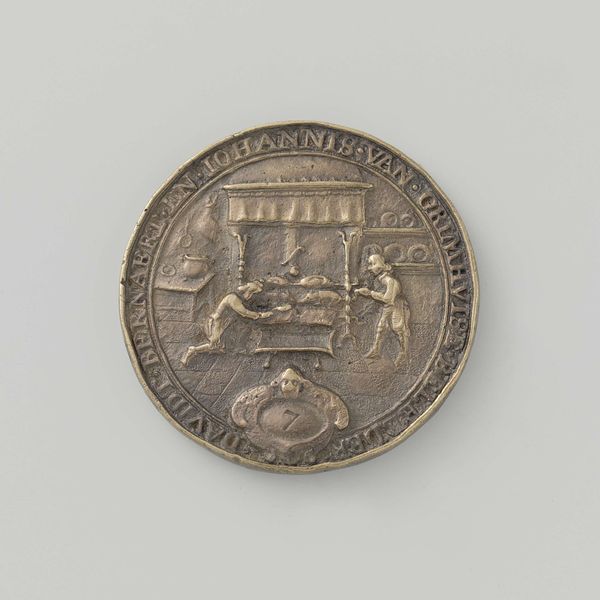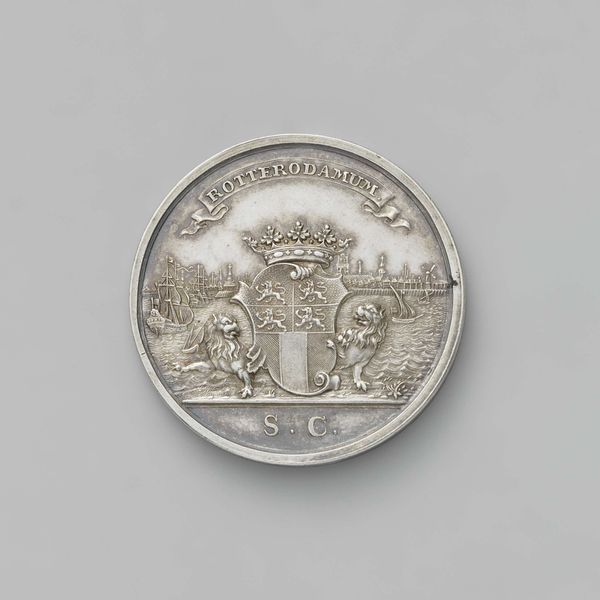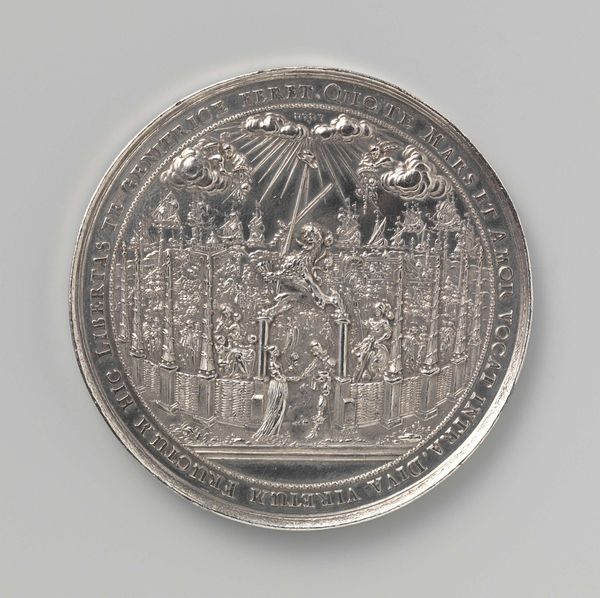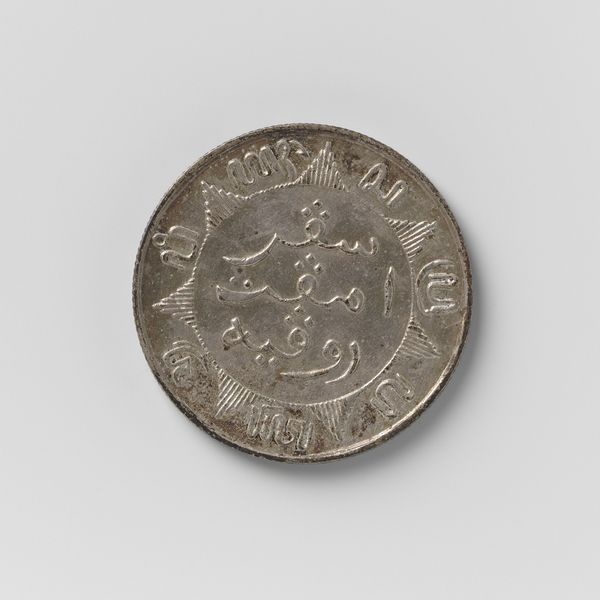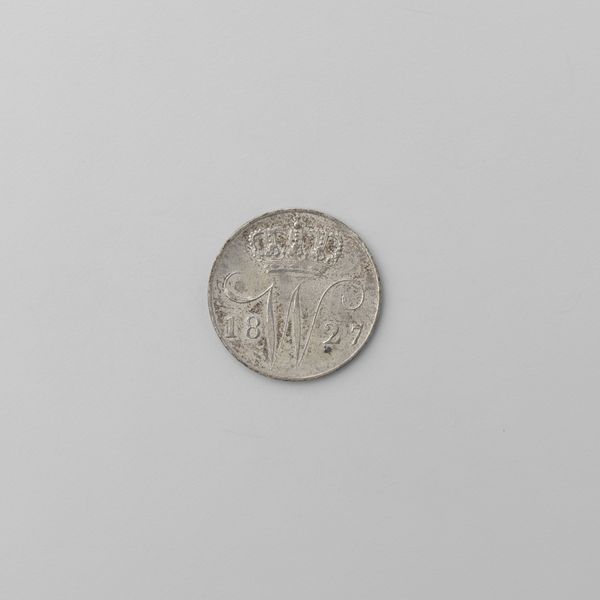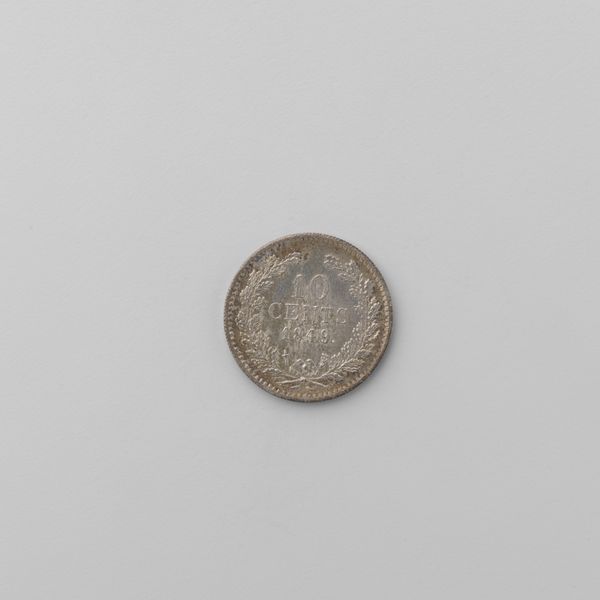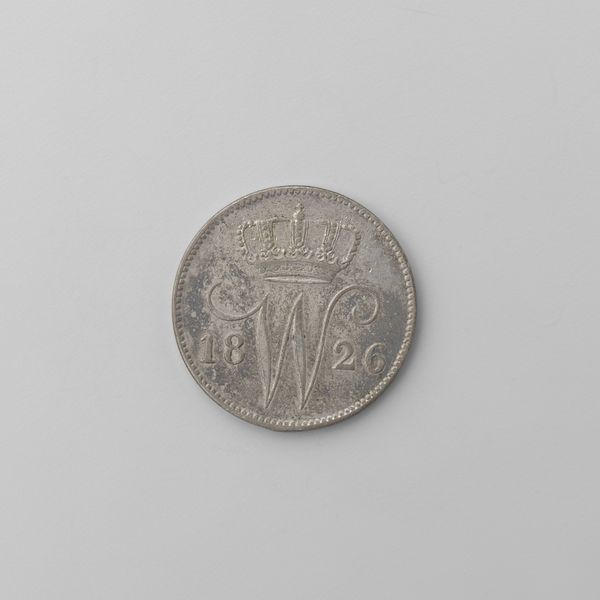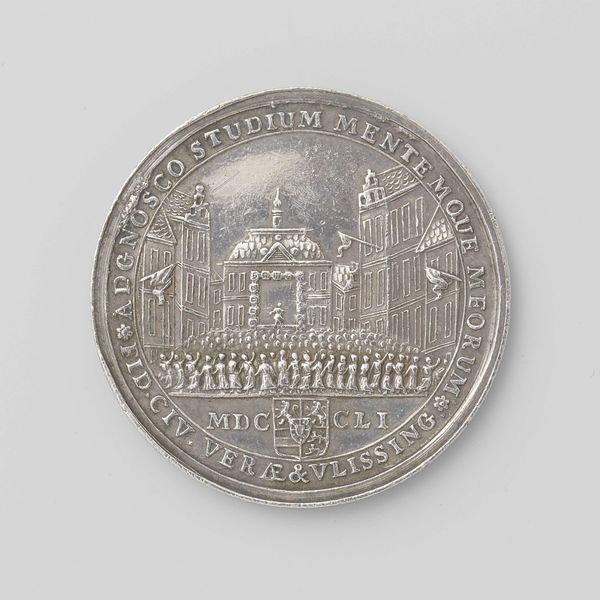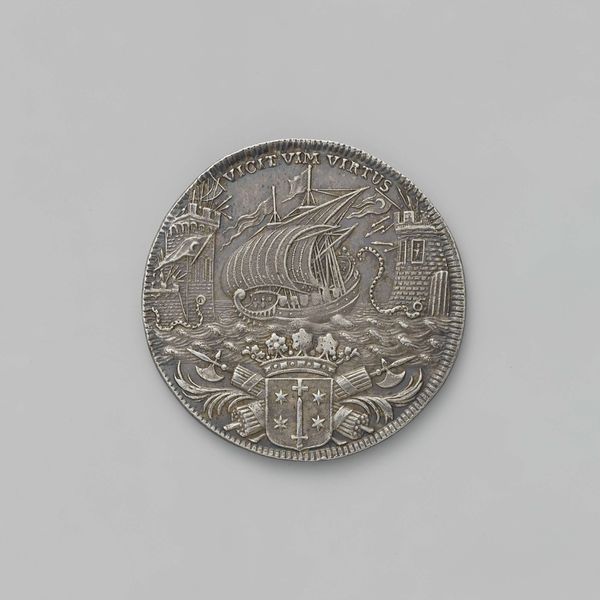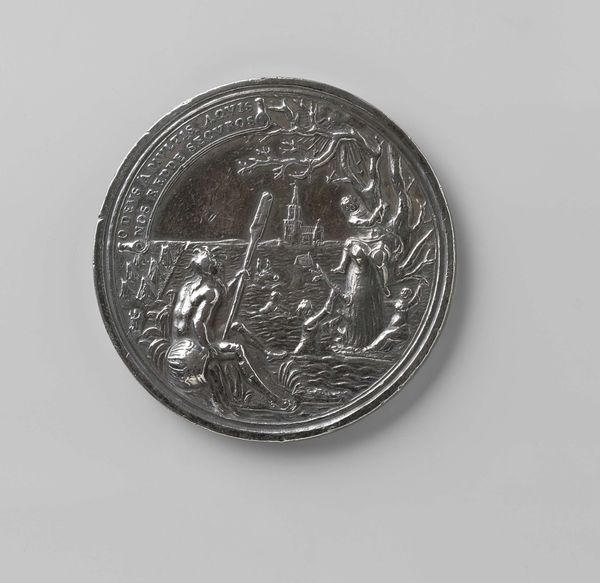
metal, engraving
#
portrait
#
baroque
#
metal
#
ceramic
#
history-painting
#
engraving
Dimensions: diameter 2.7 cm, weight 6.60 gr
Copyright: Rijks Museum: Open Domain
Editor: This is the 'Vroedschapspenning van de stad 's-Hertogenbosch,' a metal and engraved piece from 1705 by Theodorus Casparus van Berckel. I'm struck by how much detail they fit into such a small space. It feels symbolic of the city itself. What do you see in this work? Curator: It’s fascinating how cityscapes become potent emblems of identity. Notice how the architectural representation isn't merely topographical. The skyline of 's-Hertogenbosch, elevated and presented beneath the inscribed motto 'S.Iva.Dvcis,' takes on a totemic quality, almost as if it’s a protective deity overlooking the municipality. Does this composition resonate with other city symbols you have studied? Editor: It does. Now that you point it out, the positioning almost feels like a divine right to rule! What about the figures on either side of the crest? Curator: Excellent question. These figures – perhaps allegorical representations of civic virtue or industriousness - flank the heraldic shield. Their nudity suggests an association with classical ideals, lending legitimacy and historical weight to the city's governance. Their inclusion is no accident; rather, it signifies a conscious effort to situate 's-Hertogenbosch within a broader narrative of European power and heritage. Can you perceive an intended message? Editor: Definitely a power statement. The combination of classical imagery and the detailed cityscape tells a clear story about the city’s importance and pride. Curator: Precisely! Medals such as this served as instruments for shaping public perception and solidifying the city’s brand. I learned through its cultural encoding how much it conveyed about 's-Hertogenbosch’s aspirations in that era. Editor: Me too! The layers of meaning embedded within what seems like a simple design are truly impressive.
Comments
No comments
Be the first to comment and join the conversation on the ultimate creative platform.
